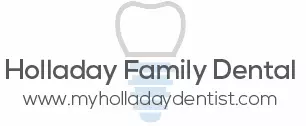22 Jun 2018 Cold Sores 101
Cold sores are a sores that appear around the edge of lips. Sometimes they look like blisters and have been called fever blisters. Some people confuse cold sores (outside edge of lips) with cancer sores (shallow sore on inside of mouth). Cold sores are caused by the Herpes Simplex Virus (or HSV-1). Unfortunately, most people that have HSV-1 will have it their whole lives. Most of the time, they may have not symptoms and may not even think about it. But it can flare up in the form of cold sores. Cold sores wont cost you a fortune in cosmetic dentist bills, but they are annoying and certainly are painful.
What causes cold sores?
Cold sores have a number of causes:
- A cold or fever or anything that brings down your immune system.
- Mental or emotional stress.
- Trauma to the lips or mouth.
- Sun exposure.
- Stress.
Are cold sores contagious?
Yes, they are, particularly if they appear as an oozing blister. Even if they don’t, they can still be passed from one person to another easily. If you often get cold sores, don’t share drinks with other people, share utensils, or share towels. Avoid kissing people when a sore is present.
How do you get rid of cold sores?
Most cold sores heal on their own within a week. If you can’t wait that long, there are a number of home remedies and over-the-counter drugs.
- Try aloe vera gel to soothe the sore and reduce inflammation.
- Try tee tree or peppermint oil. Any essential oil with antimicrobial or antiviral properties could help.
- Soothe it with a cold compress or by rubbing an ice cube on the sore.
- Get a Q-tip and dab baking soda paste or salt water on the sore.
- Vitamin C boosts white blood cells. It can be found in colorful foods—deep green, orange, and red—or as a supplement.
- Vitamin E is great for skin and helps repair damaged cells.
- Echinacea is a great immune booster. You can take it as a supplement or as a tea.
Does dental work cause cold sores? Are cold sores preventable?
No, dental work doesn’t cause cold sores, but if you have the tendency to get them, let your dentist know. Since they can flair up due to trauma to the mouth, your dentist can be extra gentle when filling cavities or doing a root canal. If you let your dentist know in advance, you could also get a prescription for an antiviral medication to take in advance of a procedure. Your dentist will do all he or she can to help you to have the best experience possible. But with all of this said, cold sores are not 100% preventable because the Herpes Simplex Virus is something you may carry and can still flare up.
Since cold sores are so contagious, if you have any doubts about the cleanliness of your dentist’s office or the sterility of their instruments, go to another dentist. You don’t want to get cold sores passed on to you. Just be sure to have good dental hygiene and go to a good clean dentist.

